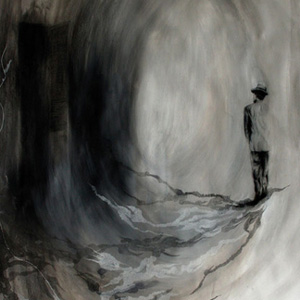A couple of Christmases ago we were invited to a very jolly party by friends of ours who I'd forgotten were confessing Christians. It was around the time that Rowan Williams had been translated to Canterbury, and I was saying to a total stranger that the new Archbishop seemed a sound sort of chap, and the only thing wrong with him was that he appeared actually to believe in God. I enjoy this kind of flip remark, but the chilly response indicated that my new friend didn't, and he summoned over the local vicar, dressed in mufti, to deal with me. After we'd sniffed around each other a bit to establish our diametrically opposed positions, he challenged me with one of the feebler bits of rhetoric the faithful adopt to clinch the argument. "How then," he said, leaning back in the way people do when they think that what they're going to say next will be the coup de grace, "do you explain the fact that religion is a universal phenomenon?" My riposte was immediate. "And how do you explain that you can say exactly the same thing about keeping pets?" One – nil to me.
And it's true. Every human society keeps companion animals. I have a dog sleeping at my feet as I write this. Mullah Omar communed with his cats in Kandahar before fleeing into the night as the Northern Alliance and US Special Forces closed in on him. Henry II of England had a pet polar bear, the Aztec Montezuma had a private zoo, Engels kept a pet hedgehog, Hitler had a pet Alsatian he doted on, Amazonian tribes keep all manner of animals, from snakes to pangolins, they find in the jungle and then choose not to eat, and the emperors of China apparently kept the biggest carp in the World.
But what's that got to do with religion? Well, everything, as it happens. We keep pets because we, as a species, have this wonderful thing called empathy, and we have it to a far greater degree than our closest genetic cousins, chimpanzees. A child of four can empathise eight times further than an adult chimp, which is another way of saying that that child can project him or herself across eight degrees of separation, to imagine what it's like to be someone seven people removed from him or herself. Thus pet-keeping. We imbue our companion animals with human qualities by projecting our own personalities into them, and they respond to a lesser or greater degree depending on what they are. And it's the same with God. Or gods. We project ourselves into transcendental beings of our own creation, imbuing them with our own personalities or qualities, creating God in the image of Man.
This is obvious if you look at the pantheons of gods in any polytheistic belief system, where strict demarcation applies, with different gods for this and that, and if monotheism muddies those metaphysical waters, you've still got all those intercessionary saints, and enough cultural and historical evidence to explain the emergence of monotheism as a reaction to polytheism, and its subsequent success and hegemony is equally explicable in pretty straightforward cultural and historical terms.
All of which (along with much else) is why I am so certain and comfortable in my atheism. As far as I'm concerned, religion is the proper subject not for theologians but for anthropologists, sociologists and even biologists. Quite apart from the obvious shortcomings of religion – its misleading simplicity, exclusivity, intolerance, unadaptability, obscurantism and so much else – it's also clearly and demonstrably wrong. The fact that this is almost a matter of faith with me is, I know, rather ironic, but it also means that I simply cannot understand why billions of my follow human beings persist in choosing to be deluded into continuing to believe in their own chosen deity when it plainly doesn't exist as anything more than a comforting extension of themselves.
And perhaps my incomprehension points up shortcomings of my own. To get back to the vicar, the ubiquity of religion must mean something, mustn't it (and something which can't be countered with the flip if satisfying response that huge numbers of people also voted for Hitler)? Then, a few weeks ago, a geneticist was interviewed on the Today programme claiming to have isolated the 'faith gene', which predisposes those who possess it to a more 'spiritual' attitude to life. So, like almost everything else, it's your genes. These people living their lives in error can't help it, and this predisposition towards transcendentalism, while having possible evolutionary advantages (clarity of purpose, community cohesion, a heightened awareness of the need to hold village fêtes and kill people different from you), is once more so clearly based in human beings, quite literally coming from within ourselves, that it appears to settle the matter once and for all.
Unless, of course, it turns out that I'm completely and utterly wrong. As I was listening to the radio, a hideous germ inveigled its way into my mind. What if it was just another example of what Philip Gosse said? Gosse, a 19th century marine biologist and Seventh Day Adventist preacher, responded to Darwinism by arguing that God had placed the fossils in the strata of the rocks at the moment of creation purely in order to tempt us into error. Bloody hell! Maybe this gene was the same thing (and let's not reflect here on what a shitty thing that would have been for God to do). Worse, maybe these genes were the final physical evidence for the Elect! A kind of Calvinist equivalent of Descarte's pineal gland, the actual seat of the soul which I'm clearly lacking! Of course, I don't believe a word of all that nonsense, but then again, because of the caprice of the genetic tombola, I wouldn't, would I?
All of which leaves things much as they were before, and rather uncomfortably I'm still just left with my faith in the evidence of my own eyes, while they're left with their faith in faith. As ever when religion comes up, it's all a bit of a Mystery.

